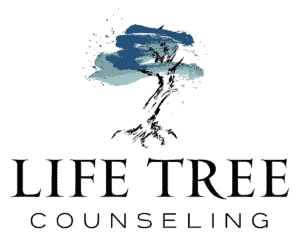Getting Professional Help on Your Journey to Recovery
In my first segment of “Your Journey Into Recovery”, I provided a brief description of the addictive process and encouraged you to remain steadfast in your recovery efforts. It takes a great deal of courage to admit that your life is out of control because of an addiction.
This segment focuses on the importance of obtaining professional help in the event that it’s necessary in your case. Examples of “professional help” are treatment centers, psychiatrists/physicians and/or therapists/counselors. Your addiction may have progressed to the point where medical detoxification is necessary as a part of your recovery plan. In that case, it is extremely important that you receive a comprehensive evaluation at a treatment center to assess the level of care that will be needed for you.
In a nutshell, the levels of care for addiction treatment are: Medical/Inpatient Detox (Outpatient Detox is appropriate in some cases), Partial Hospitalization, Intensive Outpatient, Supportive Outpatient and Aftercare treatment. Most chemical dependency treatment facilities provide these levels of care. An assessment (also called an evaluation) is completed by a licensed professional who is specifically trained to gather your clinical information and to recommend a level of care based on this information for a better, steadier recovery. Once your history is obtained and a recommendation is given it is up to you to decide whether or not to accept this recommendation.
The services that are provided on the inpatient level include safe medical detox (in the case of substance dependence), structured group and individual therapy sessions and psychiatric treatment for any co-occurring issues that may be present—such as depression, OCD or Bipolar Disorder. We have discovered over time that a large majority of folks who are in treatment for an addiction also have one or more of these problems. That is why it’s important to be under the care of a trained Addictionologist—a physician who is board-certified by the American Society of Addiction Medicine. These physicians are specially trained to diagnose and manage patients with addiction disorders to allow the best possibilities to a full recovery. Addictive disorders are very unique and require very specialized treatment from professionals who are specifically trained to provide this care.
Once inpatient detox is complete, it is recommended that the patient continue to the next–less structured–levels of treatment which include Partial Hospitalization, Intensive Outpatient, and Supportive Outpatient (not always provided at some facilities) and then Aftercare. Individual and group counseling sessions are provided at each of these levels and typical “topics” of the sessions include basic sober coping tools, stress management, anger management, dealing with family issues, spiritual growth and assertiveness skills. These are just a few examples of what some of the group and individual sessions would cover. The primary goal is to teach you as much as possible so that your efforts to maintain your sobriety are strengthened.
Other resources that are sometimes recommended at each level of care are professional counselors, psychiatrists, massage therapists, acupuncturists, personal trainers, spiritual/clergy leaders, life coaches and various support groups such as Alcoholics Anonymous and Narcotics Anonymous, All of these individuals or groups can provide invaluable support, expertise and guidance during the process of recovery. Addictions affect every area of our being—physical, psychological and spiritual. And, a “holistic” approach to recovery is one which addresses each area and offers you a chance to strengthen your recovery efforts.
So…if you’re still reading this article, you or someone you know…may be suffering from an addiction. There is hope. And, there is help. Reach out to a treatment center in your area if see yourself in trouble. These treatment centers are FULL of people who care and want to help. But, it’s YOU that has to take that first step.
“Change is what happens when the pain of staying the same is greater than the pain of changing.” –Rav Berg
For more help or information call us at Lifetree counseling at (972) 234-6634
Tags:
